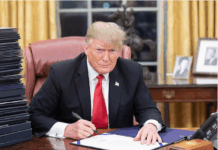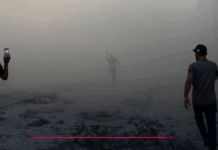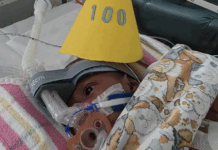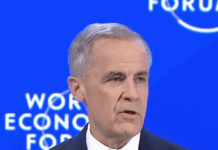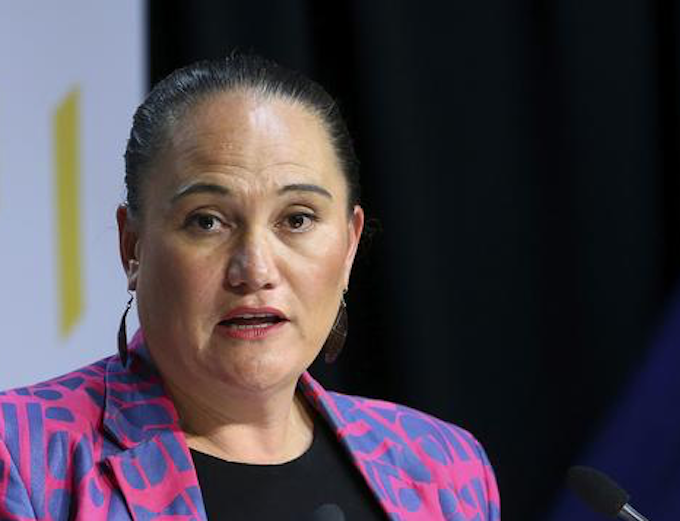
By RNZ News
An immigration consultant is warning an entrenched underclass of unlawful workers will emerge unless the government provides emergency benefits to unemployed immigrants.
About one in ten of the workforce is an overseas worker on a temporary visa.
The Ministry of Social Development has previously signalled that those who have lost their jobs should approach their embassies for help.
READ MORE: Al Jazeera coronavirus live updates – South Korea reports no new domestic cases
But immigration adviser Alain Koetsier said that was not a realistic option for many nationalities, who would be driven into bad situations.
He called on the Minister for Social Development Carmel Sepuloni to implement a section of the Social Security Act, enacted for epidemic situations, to allow emergency welfare payments to immigrants.
“If they run out of money, then they effectively have very little recourse other than potentially turning to the unlawful job market, and working under the table,” he said.
“If they do that, not only do they expose themselves to slave-like work conditions, but they drive down wages for New Zealand workers, and New Zealand businesses can expect to be undercut by competitors who use cheap or free migrant labour, so it has very negative consequences for the entire New Zealand economy.
Facing extreme poverty
“Hardworking and taxpaying migrant workers will face the worst consequences – if they refuse to work unlawfully, they face extreme poverty, if they choose to breach their visa conditions out of desperation, they face deportation or exploitation.”
Many immigrants had no way of going home because borders were closed or no flights were available, he said.
“These workers may remain unlawfully employed for many years, fearful of approaching authorities lest they be punished. We could see a large underclass of illegal workers become entrenched in the New Zealand economy in the long term.
“The government will not receive any tax from the illegal labour but will need to spend more to fix the problems that result. The economic recovery from Covid-19 will be much harder in such a situation.”
Immigrants needed help after paying taxes and establishing a life in New Zealand, he said.
“There is a strong humanitarian component as well, that these migrants many of them have poured a lot of money, life savings into the New Zealand economy, and that they now need our help,” he added.
“I think that all these taxpaying migrants who have contributed so much to our country also deserve a helping hand at this time of crisis.”
INZ directs workers to embassies
Immigration New Zealand (INZ) continues to advise expats, who are not currently employed, and are experiencing financial difficulty during the pandemic to talk to their embassy or consulate for assistance.
“The government has agreed to relax visa conditions for a short period to allow temporary migrant workers and international students to further assist with our essential services during the Covid-19 response,” an INZ spokesperson said.
“Work visa holders with employer-specific work visas already employed in essential services will be able to vary their hours and be redeployed to do other roles within their current workplace.
“They can also perform their current role in a different workplace in the same region to help essential businesses keep operating while New Zealand remains at alert level 3 and for six weeks after that.
They said the government was also looking at a range of other options for temporary work visa holders and would make decisions as soon as possible.
Three new cases of covid-19
New Zealand has reported just three new cases of Covid-19 over the past 24 hours, the 12th day in a row the increase has remained in single digits.
Director General of Health Dr Ashley Bloomfield said seven people were in hospital, but none are in intensive care.
Dr Bloomfield said there was now a total of 1129 confirmed cases, with 347 probable cases.
He said an earlier probable case had been reclassified as not a case.
“There was a significant increase in testing yesterday, with 5867 tests performed and our new total of tests in 134,570,” he said.
He said 1241 people had now recovered from the coronavirus, an increase of 12 from yesterday. He said 84 percent of cases had now recovered.
The number of significant clusters remained at 16, and the death toll stood at 19.
Prime Minister Jacinda Ardern said while people could now enjoy takeaways, it was vital distancing was occurring and people needed to stay at home if there was no proper reason to be outdoors.
She said there had been 185 breaches under alert level 3, including 81 in the past 24 hours and 48 new warnings.
Police have advised that after a bit of a spike in the first 24 hours of alert level 3, things have calmed down, she said.
“Please continue to act like you have the virus when you are out and about and if you see breaches, please report them.
“Now is not the time to loosen up our compliance.”
- This article is republished by the Pacific Media Centre under a partnership agreement with RNZ.
- If you have symptoms of the coronavirus, call the NZ Covid-19 Healthline on 0800 358 5453 (+64 9 358 5453 for international SIMs) or call your GP – don’t show up at a medical centre.
- Follow RNZ’s coronavirus newsfeed


